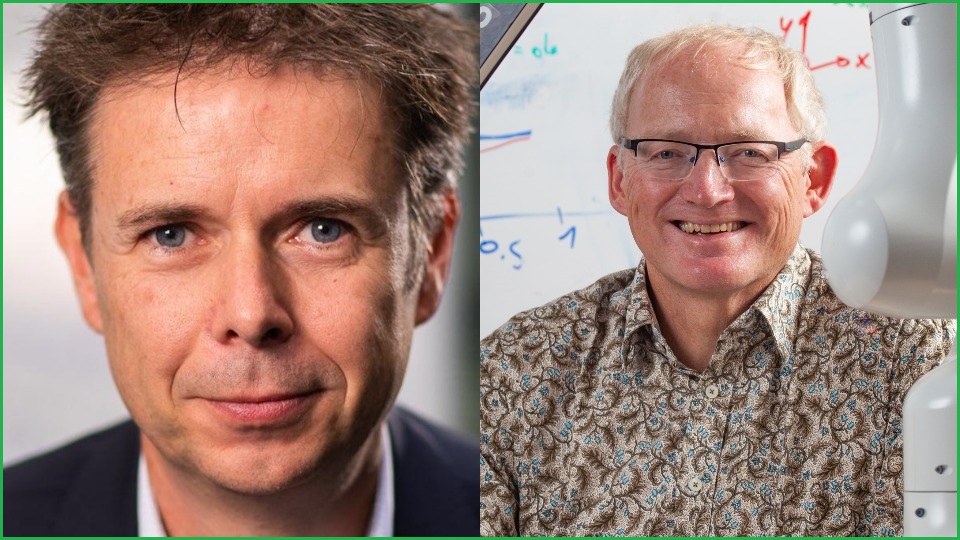Comments made by Telstra CEO Vicki Brady have been criticised by two of Australia's most prominent artificial intelligence experts, after the chief executive of the country's largest telecommunications provider said Australia did not need to create its own domestic Large Language Models (LLMs).
LLMs are the complex underlying technologies behind popular generative AI chatbots such as Google’s Gemini and OpenAI’s ChatGPT.
Speaking during Telstra’s half-year results presentation on Thursday, Brady said while she saw “a real opportunity” for Australia to remain competitive “in how we apply AI as a country”, the nation did not need to invest in its own sovereign LLMs.
“I don’t think Australia needs to be investing in things like building Large Language Models — I do think that’s a global game,” she said on the earnings call.
“But I think Australia needs to be really brilliant at how we apply AI in our environment.
“And that means we’ve got to have all the foundations there to enable that, and that does include digital infrastructure.”
Telstra announced on Monday it had finalised plans for an AI joint venture with global consulting firm Accenture, with Australia’s largest telecommunications provider prepared to spend $700 million over seven years to continue integrating AI technologies within its businesses and networks.
The joint venture, 40 per cent of which will be owned by Telstra, will involve 726 roles in the company’s data and AI teams in both Australia and India, with teams beginning work from April, the company said.
Experts warn against Australian ‘AI surrender’
Professor Anton van den Hengel, chief scientist of the Australian Institute for Machine Learning (AIML) at the University of Adelaide, said it was “really unfortunate that a company as critical to the Australian economy as Telstra [was] out there saying we can’t compete globally”.
“Frankly, it’s ridiculous,” he told Information Age.
“… AI is the technology of our time, and it is not enough to simply be users of that technology.”
While van den Hengel said Australian companies needed to use AI tools to help lift the country out of its productivity slump, he argued “the bigger opportunity” was to create globally competitive Australian companies.
“You can’t build an Australian Google, Uber, or Facebook business model on downloaded technology,” he said.
“You can’t compete globally by just downloading other people’s technology, because everybody else can download it too.
“… This AI surrender policy that Vicki [Brady] is proposing will see us become an economic backwater, because there is no differential advantage against our competitors from just downloading technology.”
Toby Walsh, chief scientist of the University of New South Wales AI Institute and a member of the ACS AI and Ethics committee, said Australia needed to build sovereign LLMs so it could address its unique challenges.
"There are areas where we don’t want to share the data with people elsewhere, such as our medical data and the data that our security services collect," he said.
"There are also areas where the problems are ours and ours alone, such as bushfires, floods, and protecting the Great Barrier Reef, that no one else is going to solve if we don’t."

AI experts Anton van den Hengel and Toby Walsh argue Australia should be developing its own Large Language Models. Photos: UNSW / The University of Adelaide
Australian tech giant Canva’s 2024 acquisition of local AI startup Leonardio.Ai — which had developed its own image-generation LLM — was a “fantastic example” of a local company seeing the value of supporting domestic AI, van den Hengel said.
Telstra’s $700 million AI investment with Accenture would have been better spent, he argued, on an Australian-based AI lab where workers would likely go on to form successful spin-off companies.
“But instead, what’s happening is all of that benefit will be going to India because the economic drivers for research are more favourable in India,” he said.
Telstra would not confirm how many of its 726 data and AI staff taking part in its joint venture with Accenture were based in India.
Last year the telco announced plans to cut up to 2,800 workers, or about 10 per cent of its workforce, in a shakeup which included further investments in AI.
Does AI need an R&D boost?
Vicki Brady’s dismissal of local LLMs appeared at odds with the federal government’s recent push to drive an increase in research and development (R&D) investments across the Australian economy.
An ongoing independent review into the sector already found the business community was “largely indifferent” to investing in R&D, while Minister for Industry and Science, Ed Husic, has argued Australia is “virtually giving [its] world-class science away for free”.
Local AI companies have also previously complained about lacklustre federal investment in local firms, with a Senate inquiry hearing the government’s “dependence” on large overseas tech firms was “stifling” the development of local competitors.
While the government had been making “a lot of noise” about R&D lately, it needed to do more to increase government and private investment in AI research, van den Hengel argued.
“The reason Australia needs to build an LLM is because we need skills in building LLMs,” he said.
“And the way you build skills in building LLMs is to build an LLM.”
Walsh said the building of Australian-based LLMs would "grow national capability, powering economic growth and ensuring the AI built aligns with our — and not Silicon Valley’s — ethical values".
Both experts have previously argued the rise of Chinese AI chatbot DeepSeek — which was allegedly created with much less processing power and capital than its US competitors — showed Australia was “not too late to the party” when it came to AI R&D.
However, there are currently very few prominent LLM projects in Australia.
An open-source effort called Kangaroo LLM launched in 2024 but has not provided a substantial update on its progress in months, and did not respond to a request for comment.
Tasmanian Senator Claire Chandler, the shadow minister for government services, the digital economy, science, and the arts, said it was “critical” that government regulations did not restrict Australian businesses.
“From my discussions with stakeholders, there are opportunities in AI right across the supply chain, if government acts promptly and gets the regulation right,” she said.
Minister Husic declined to comment on whether Australia should develop its own LLMs.










